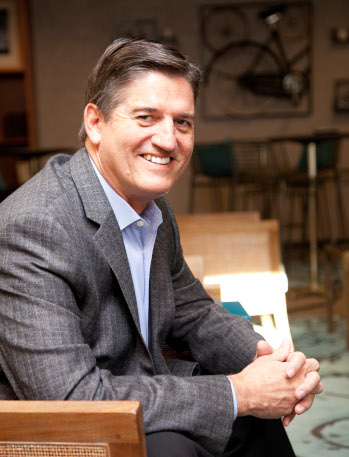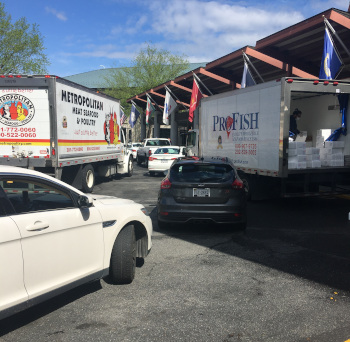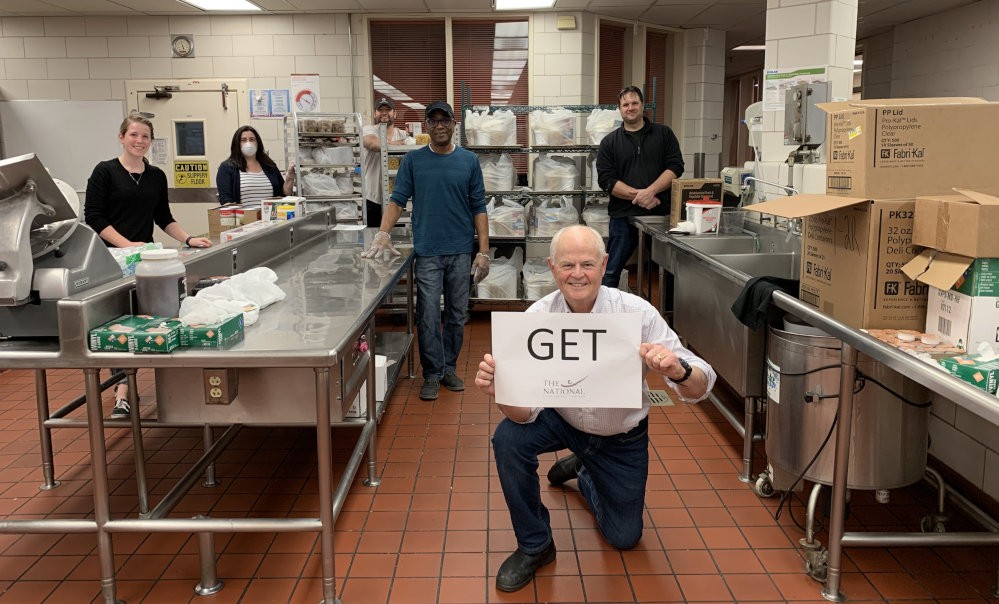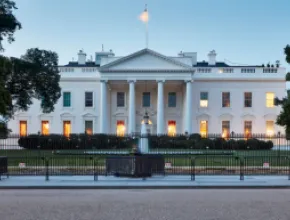While global hotel companies have fast-tracked post-COVID-19 shutdown reopening policies and procedures covering everything from sanitation to social distancing and the food and beverage experience, one segment of the hospitality industry is well positioned to emerge from the shutdown, at least in the short term.
Being purpose-built facilities—and fundamentally for the primary purpose of learning—conference centers hold a winning hand for groups itching to meet face to face but still wary of large gatherings and travel difficulties.
“Conference centers are uniquely positioned to get to the other side in a much stronger place than perhaps the traditional hotel or resort,” said Chuck Ocheltree, strategic alliance officer for Leesburg, Virginia’s The National Conference Center. “The conference center advantage that we have been promoting for years now presents a smart solution to the many challenges—from buffet dining transforming to an open-market experience to purpose-built space creating a protected, private-like environment.”
[Related: 3 Trends to Watch From IACC's 2019 Meeting Room of the Future Report]
 One huge advantage most conference centers have is the ability to host groups in a relatively sequestered environment, with most facilities catering to one group at a time. The all-inclusive nature of conference centers is also a major boon, as everything a client needs is typically available in-house.
One huge advantage most conference centers have is the ability to host groups in a relatively sequestered environment, with most facilities catering to one group at a time. The all-inclusive nature of conference centers is also a major boon, as everything a client needs is typically available in-house.
(Photo: Chuck Ocheltree, strategic alliance officer for Leesburg, Virginia’s The National Conference Center. Credit: National Conference Center)
“From technology to Post-it Notes, whatever the client needs has to be right there in that environment,” Ocheltree said. He added that conference centers typically offer a high meeting-space-to-guest-room ratio—the 917-room National, for instance, offers 250,000 square feet of meeting space that includes 250 conference rooms. Its 16,000-square-foot ballroom can easily be set for 300 people rather than, say, 1,000, to adhere to ideal social distancing protocols.
“You can still isolate a group or a meeting,” Ocheltree said. “Conference centers are probably in a unique position that way.”
Ocheltree said that because many conference centers own their own technology and have a dedicated staff, it’s easy to make sure equipment is properly serviced and cleaned.
The avoidance of travel hassles, at least in the short term, also presents an advantage to conference centers, which often operate near company headquarters so many attendees can drive in. Experts are predicting that the drive market will be the first segment of the travel and meetings industry to recover.
The National Gives Back and Prepares for Future
 The National Conference Center suspended operations March 18 as COVID-19 shut down the meetings and events industry, but because it is privately owned, Ocheltree said it was able to keep its sales and conference planning team in place, allowing it to ramp up fast when business resumes. The facility also added a new vice president of sales and marketing, Kevin Croke, to its fold, right before the pandemic forced the shutdown.
The National Conference Center suspended operations March 18 as COVID-19 shut down the meetings and events industry, but because it is privately owned, Ocheltree said it was able to keep its sales and conference planning team in place, allowing it to ramp up fast when business resumes. The facility also added a new vice president of sales and marketing, Kevin Croke, to its fold, right before the pandemic forced the shutdown.
(Photo: Drive-Thru Market for the community set up at National Conference Center. Credit: National Conference Center)
Although at publication time The National did not have a firm opening date, the facility’s leadership team, led by Vice President and General Manager Geoff Lawson, put together a 15-member Essential Services Team (EST) to keep the conference center operational ready. The EST is split into three committees:
- Communication Committee, which is responsible for messaging to its associates, clients and the meetings industry, including social media exclusively for its staffers.
- Care Committee, which helps associates who were furloughed file for unemployment benefits and obtain other government assistance, as well as offer support to leadership and department heads.
- Operational Readiness, which is responsible for all operational activities and the preparation to reopen, including new processes that include cleaning procedures, food delivery and guest services.
The National’s Executive Team also leapt into action after operations were suspended to set up a grocery service for employees who were furloughed, including a Drive-Thru Market that allows the community to purchase restaurant-quality products at inexpensive prices from a location in the parking lot of the venue.
[Related: The Meeting Room of the Future]
Ocheltree said the facility at publication time was in the final stages of producing a procedures document covering everything from social distancing measures to F&B plating standards.
Buffet food service is relatively standard in the conference center segment, which Ocheltree admitted would be difficult to offer when business resumes. He said that buffets may initially be replaced with a “market” concept that presents individually wrapped meals attendees can select.
IACC Recommends New Standards
IACC, an association that represents more than 400 conference center venues in 26 countries, also sees a benefit to its segment, at least initially, when face-to-face meetings resume.
 “Conference centers by the nature of their design, due to the scale of meeting spaces, offer meeting groups more privacy from other groups and other traffic, as the general public are usually separated from the extensive meeting areas, which is a positive when re-opening for business in a restricted contact environment,” said Mark Cooper, CEO of IACC. “It is hoped that in the future, when we meet as smaller groups to begin with, that venues designed for these smaller events will be best placed to manage the hosting of meetings.
“Conference centers by the nature of their design, due to the scale of meeting spaces, offer meeting groups more privacy from other groups and other traffic, as the general public are usually separated from the extensive meeting areas, which is a positive when re-opening for business in a restricted contact environment,” said Mark Cooper, CEO of IACC. “It is hoped that in the future, when we meet as smaller groups to begin with, that venues designed for these smaller events will be best placed to manage the hosting of meetings.
(Photo: Mark Cooper, CEO of IACC)
“A group of, say, 15 people meeting might be guided by regulations closer to opening an office complex back up, as opposed to those that will be enforced for a large event,” Cooper continued. “And as I mentioned before, many dedicated conference and training centers will offer low or no general public presence, a large factor in managing contact.”
IACC produced three COVID-19 Reopening Resources guides to help members ramp up for the post-shutdown environment. The association stresses that the guides are meant to be informational resources, and individual facilities must liaison with their local government and health department guidelines when setting up their new operating procedures.
The documents are available at www.iacconline.org/iacc-venue-re-opening and target three areas:
- Operations and Reopening covers protocols that include restaurants, bars and lounges; guest rooms; refreshment break stations; housekeeping; swimming pool operations; conference services; and front-of-house services and transportation. Highlights include sanitization, contact-free service and guidelines for servicing break food stations and scheduled meals.
- The Employee and Guest Health guide details items such as thermal cameras, physical distancing, hand sanitization, entry screening and case notification protocols, along with employee training and advice on protocols that follow the guest/attendee journey from arrival and elevator use to public spaces, guest sanitation amenities, guest rooms, air filter and HVAC cleaning to the location of personal protection equipment. This guide also details physical distancing at various facilities in a venue.
- Entry Screening procedures and Case Reporting covers primary screening upon entrance to a venue, including the use of thermal cameras to detect guest temperatures above 100 F, which would result in a secondary screening; health authority reporting; transportation; and internal reporting, among other sections.
How the “new normal” will impact IACC’s major Meeting Room of the Future global trends report could be another matter entirely. According to Cooper, IACC will explore what any new vision of the future of meeting rooms will entail during its May 18-21 IACC Americas Virtual Connect summit, which replaces its 2020 annual meeting.
“The world of smaller meetings will change, with some challenges and also some good that will come from this, I am sure,” Cooper said, adding that the first day of the summit will feature a panel discussion on the subject with leading design firm Gensler, Deloitte University and Benchmark Hospitality.
Read next: Here’s What Hotels and Resorts Are Doing to Enhance Health and Sanitation Standards






